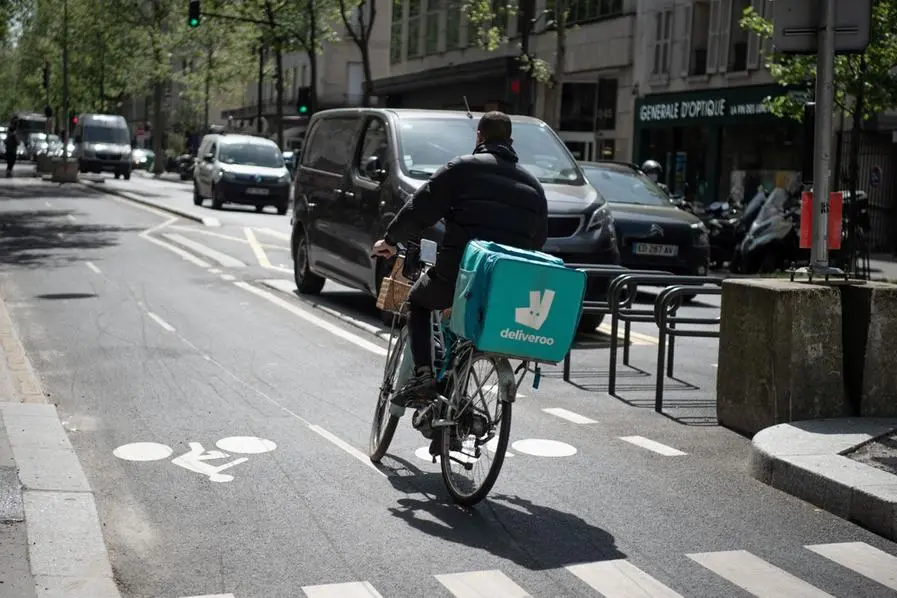PHOTO
Food delivery riders for the firm Deliveroo are not entitled to trade union rights such as collective bargaining, the UK Supreme Court ruled on Tuesday.
The Independent Workers Union of Great Britain (IWGB) had tried to represent Deliveroo riders in north London in order to negotiate on issues of pay, hours and holiday with the company.
But in a unanimous ruling, five judges at the UK's highest court dismissed the appeal.
They said they agreed with lower court judgements that the staff are not in an "employment relationship" with Deliveroo and are therefore not entitled to collective bargaining rights.
Its judges said multiple factors, including that riders are free to reject offers of work and to work for Deliveroo's competitors, are "fundamentally inconsistent" with such a relationship.
However, the judges noted there is "nothing in the UK legislation to stop the riders from forming their own union or joining the union as they have done".
"There is also nothing to prevent Deliveroo from engaging in collective bargaining with the union to seek to agree the terms and conditions applied to the riders if they so choose," they stated.
After losing a bid for recognition at a specialist tribunal in 2017, the IWGB unsuccessfully challenged that decision at the High Court and Court of Appeal.
In April the union took its case to the Supreme Court.
A Deliveroo spokesperson welcomed the judgment, saying UK courts had repeatedly and "at every level" confirmed that Deliveroo riders are self-employed.
"This is a positive judgement for Deliveroo riders, who value the flexibility that self-employed work offers," the spokesperson said.
"Thousands apply each week to work with Deliveroo because they want to be able to decide for themselves when, where and whether to work.
"We are proud to be able to offer tens of thousands of riders this flexibility alongside the security of free insurance, sickness coverage, support for new parents and a unique union recognition agreement."
The IWGB said the ruling came as a "disappointment".
"As a union we cannot accept that thousands of riders should be working without key protections like the right to collective bargaining," it said.
"We will continue to make that case using all avenues available to us, including considering our options under international law."





















